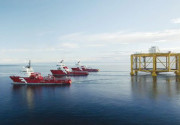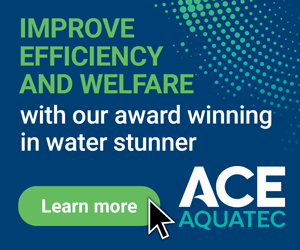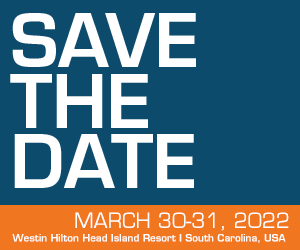| |
| |
 |
 |
| |
 |
|
@{mv_date_MMM d, yyyy}@ |
|
| |
 The Government of Canada is investing a total $30 million to fund clean technology for the aquaculture and fisheries industries to boost sustainable economic growth while fighting climate change.
» Read more
The Government of Canada is investing a total $30 million to fund clean technology for the aquaculture and fisheries industries to boost sustainable economic growth while fighting climate change.
» Read more
Circular economy, also called circularity, is an economic system which focuses on eliminating waste. Aquaculture, especially through recirculating aquaculture systems, is just one of recent areas where this principle is being adopted in a form known today as industrial symbiosis.
» Read more
A new study on piscine orthreovirus (PRV) has lent credence to earlier findings that the virus poses a “very low risk” to British Columbia’s population of wild Pacific salmon and that they remain physically fit even when infected.
» Read more
|
| |
 |
 |
| |
|
| |

This volume is intended to contribute to improving this unsatisfactory state by addressing the widespread need for information and guidance on the broad and often complex task of fisheries management. It is an updated and expanded edition of the first version of “A Fishery Manager’s Guidebook” which was published as a FAO Fisheries Technical Paper in 2002.
The major part of this new edition is divided into five parts intended to cover the range of concerns, tools and techniques essential to the modern fisheries manager, whether that manager is an individual or a formal or informal group.
>> Learn More |
| |
|
| |
 Fish farming further out into the open ocean has great potential but how economically and efficiently it can be done will be the deciding factor for its growth, say experts. Farming fish in cages located anywhere from 2km to 25 km from the shore, known as open ocean aquaculture, accounted for 29 million metric tonnes or one-third of aquaculture production in 2016.
» Read more
Fish farming further out into the open ocean has great potential but how economically and efficiently it can be done will be the deciding factor for its growth, say experts. Farming fish in cages located anywhere from 2km to 25 km from the shore, known as open ocean aquaculture, accounted for 29 million metric tonnes or one-third of aquaculture production in 2016.
» Read more |
| |
|
| |
The unique Nobel Prize Summit Our Planet, Our Future in April was a breathtaking event to everyone engaged in sustainable development. Our role as stewards of the industry gives us the opportunity and the privilege to make transformative changes that will impact generations to come, writes Cermaq CEO Geir Molvik.
» Read more
|
|
A Globe & Mail article published on July 18 reports quotes a chef from Vancouver who is refusing to serve farmed salmon from BC. He chooses to get it instead from New Zealand — a 12,000-kilometre flight which accrues 902 kg in CO2 emissions.
» Read more
| | |
|
| |

|
| |
|
| |

|
| |
| |









